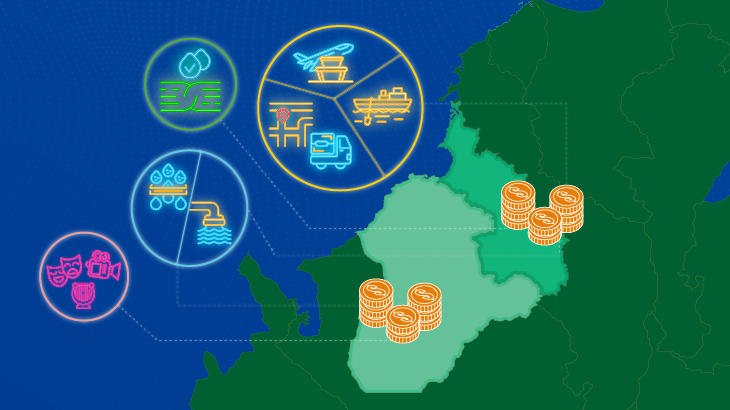
The most recent
Abstract
International and national literature provides evidence indicating that investment in infrastructure is one of the key elements to achieve economic and social development. The departments of Córdoba and Sucre require an investment in infrastructure to generate competitiveness for companies in the region, reduce poverty and social inequality, help conserve or regenerate ecosystems that contribute to improving climate change, and avoid current transportation problems, which hinder urban mobility and commercial exchange within the country and abroad. This work identifies and analyzes the existing infrastructure needs in the departments of Córdoba and Sucre in four areas: (i) transportation, (iii) adaptation to climate change, (iii) culture and sports and (iv) aqueduct and sewage. In addition, it quantifies the investment required to close the social and economic gaps with the rest of the country, based on the most relevant or prioritized infrastructure projects. The needs of the territories are broad and there are still important differences between rural and urban areas. This implies challenges that require the strengthening of local capacity to move forward.


 María Aguilera-Díaz,
María Aguilera-Díaz,  Yuri Carolina Reina-Aranza
Yuri Carolina Reina-Aranza